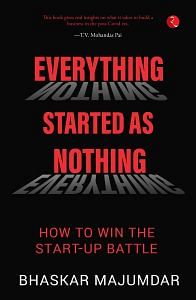What does it mean for founders when they say they want to step back? A step back can be one of several things. It might mean being less involved in the day-to-day decision-making of the company and taking more of a strategic outlook concerning the company’s future and empowering others to make decisions.
For others, it might mean stepping away completely and hiring someone else as CEO to run the company. This is sometimes voluntary, as founders understand that it’s the best choice for the business. However, it can also be a point of contention in certain situations, with investors demanding new leadership, either to bring someone new in or promote someone internally.
In 2019, the founders of Google, Larry Page and Sergey Brin, announced that they were relinquishing their roles at Google’s parent company Alphabet and were stepping away from the management for good, but that they would remain on the board. Sundar Pichai, CEO of Google, is now managing Alphabet too. Though this transition had surprised many, it had been evident as both the founders had already reduced their interaction within the company.
Also read: Too many apps, no real innovation. Cute Tech is ailing Indian technology
However, if one remembers Google’s story, they will know there was also a time when the founders had been asked by the board to relinquish their CEO title. In 2001, Larry Page was forced to relinquish his role as CEO to Eric Schmidt of Novell. The move came after the high-profile attempt by Page to fire all project managers Google had employed at the time. One of the other reasons was that the fast-growing company was becoming too much to handle for the young founders. So, at the behest of the investors, Eric Schmidt was roped in, as Sergey Brin had then famously said, for ‘parental supervision’.
Schmidt did a wonderful job at Google and took it to public markets in 2004 at a valuation of $27 billion. In 2011, after being at the helm of the company for a decade, Schmidt moved on to the role of executive chairman and Larry Page was given the reins of the CEO again. The move then, predicted many tech analysts, was to shake Google from being just a web-focused company. True to the vision of the founders—Page and Brin—Google in the next four years got into technology space such as driverless cars, AI, cloud, Nexus Smartphones, quantum computing, etc.
In 2015, in order to bring more clarity and accountability within the company, the founders created a new company called Alphabet, and announced Sundar Pichai as the CEO of Google, who would report to the board. But this was a much more mature transition and with a clear mandate that the founders wanted to get out of the everyday operational issues of the company, and gave the steering wheel of Google to Pichai. In December 2019, Page and Brin announced they were handing over the management of Alphabet to Sundar Pichai: ‘Sundar brings humility and a deep passion for technology to our users, partners and our employees every day. He’s worked closely with us for 15 years, through the formation of Alphabet, as CEO of Google, and a member of the Alphabet Board of Directors. He shares our confidence in the value of the Alphabet structure, and the ability it provides us to tackle big challenges through technology. There is no one that we have relied on more since Alphabet was founded, and no better person to lead Google and Alphabet into the future.’
Also read: McKinsey, Amazon, Deloitte — big firms make big hires from IIMs, pvt B-schools despite Covid
Founder’s dilemma: Step down as founder CEO
A founder gives his blood, toil, sweat and tears to transform an idea into a company of scale. They establish the start-up from its fledgling foundations into a stage of maturity. During the journey, stepping down and looking beyond the company seems to be the furthest from their mind.
But, during the journey it behooves the question, ‘When is the right time to let someone else captain the ship?’ There is no right answer in this regard. It can be a voluntary decision of the founder who works towards ensuring his successor is in place for a smooth transition, or can be decided by the investors who feel that the founder has passed his
sell-by-date and that the growth of the company calls for a new leader. Most founders not only aspire to create and run the next breakthrough business, but also hope to stay with the start-up throughout the company’s growth cycle, such as Jeff Bezos and Mark Zuckerberg, the world’s poster children for tremendous, long-term entrepreneurial success. However, these titans are the exception rather than the rule, as the skills needed to start a business and grow it to a certain level, and then to expand it to a very large company, are very different. The skills at each stage vary, and it takes considerable strength to realize that you might not be the best person to move forward at the helm later on in the company’s life. Founders realize that post subsequent rounds of funding, there is a need for aggressive growth that may require a CEO with experience, someone with a demonstrable record of running a successful high-growth business. This decision of the founder begins with self-introspection about the right person who can take the company to its next stage.
The critical issue is, a founder’s hostility to change is simply down to their inability to let go and understand that they are no longer the right person for the job.
Passion and dedication are integral for a founder to take the first leap of faith to build a start-up, but when it comes to implementing large internal structures (those that allow a business to run smoothly), that very approach and attitude can cause significant and sometimes fatal problems for companies that are trying to transition. In the early days of a start-up, founders are often busy firefighting and excel in dousing these fires swiftly, but later on the goal is fire prevention. Natural biases can cause one to view circumstances through rose-tinted glasses, causing an overestimation of one’s own ideas, ability, knowledge and chances of success. Similarly, one might underestimate competitors, lack the understanding of resource requirements and fail to foresee and plan for emergencies. Reluctance to hand over day-to-day control of the child the founder has nurtured and raised is undoubtedly a difficult step, but more often than not, a necessary one.
A start-up’s growth is strongly connected to the founder, who is usually very hands-on and clued-in on all that is happening. Their leadership is at the heart of decision-making and integrating the various pieces of the business model. It is hard work, involves long hours and their touch can be felt across the entire business. The role relies on a deep appreciation of the industry and the start-up’s vision and opportunity. Business operations are adaptable and dynamic when the start-up is learning how real-world complications affect the business
Also read: Women led start-ups always struggled for money. Covid made it worse
Under such circumstances, hiring a CEO is both high stakes and risk, but it has the potential to have a transformative effect in catapulting the company to the next level of growth.
As the business stabilizes, the product roadmap becomes stronger, technology matures, revenues increase and the next stage of planning for growth and expansion begins. This also signals another phase of evolution into new product or service lines, or even an acceptance to exit.
This phase is crucial and different from what the entrepreneur has been doing so far. The growth in this phase demands consistent integration, coordination and sharing of leadership with a wider senior team. The CEO must be sensitive to the people they are responsible for—shareholders, consumers and employees.
It is here that the roles diverge, the founder cannot be involved in every single decision, leaving the day-to-day decision-making to the senior team instead and acting more as a conductor. They become more of a figurehead and statesman/stateswoman, guiding and developing ideas while promoting the business.
Thus, the CEO is now required to turn their hands to selling, marketing, support, finance and legal problems. These aren’t always the skills that a successful early-stage founder is equipped with, or perhaps the start-up is moving too fast for the founder to have the necessary time to develop them.
 This excerpt from Everything Started as Nothing: How to Win the Start-up Battle has been published with special permission from Rupa Publications, and will be released on ThePrint’s SoftCover.
This excerpt from Everything Started as Nothing: How to Win the Start-up Battle has been published with special permission from Rupa Publications, and will be released on ThePrint’s SoftCover.



